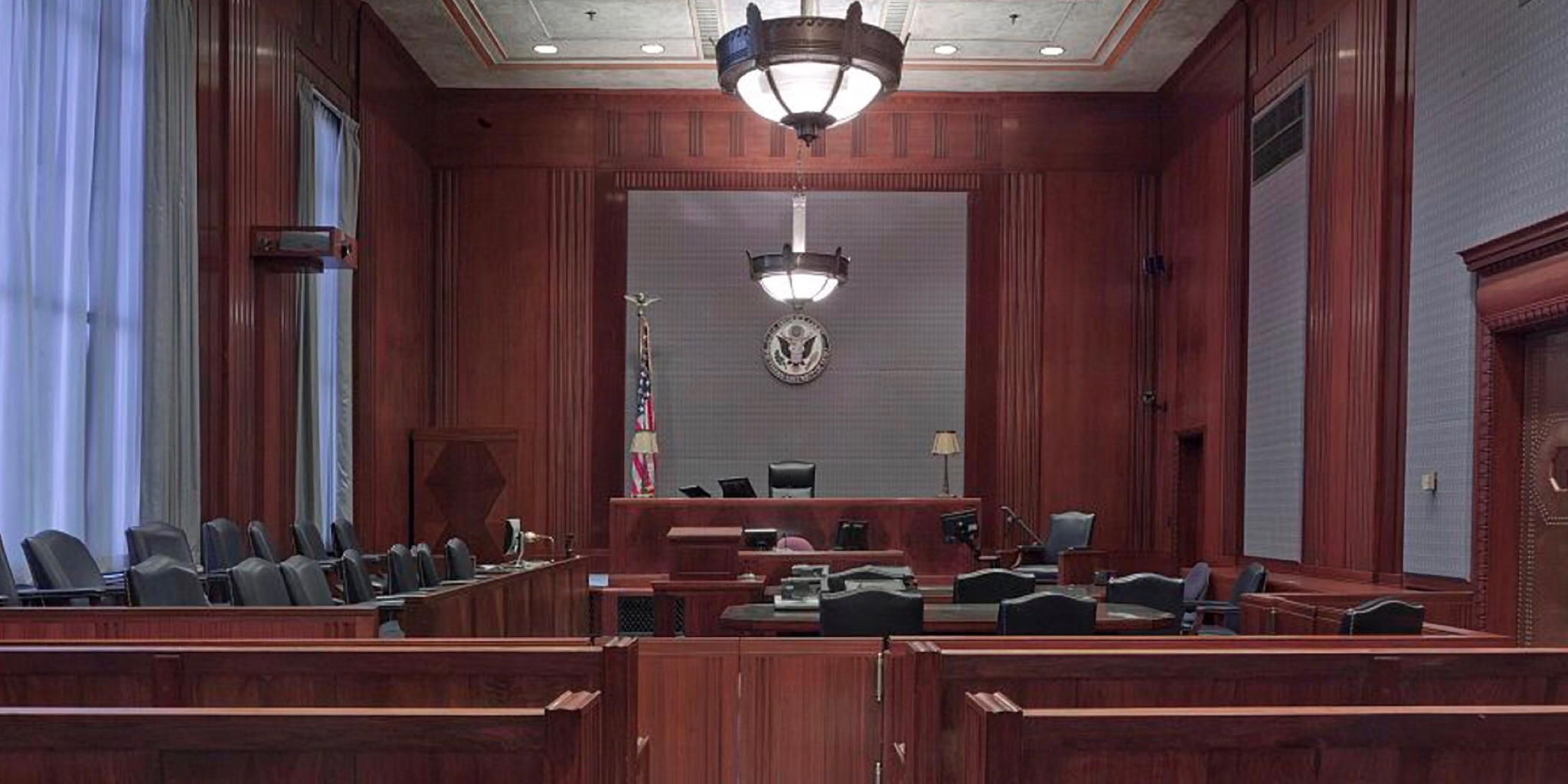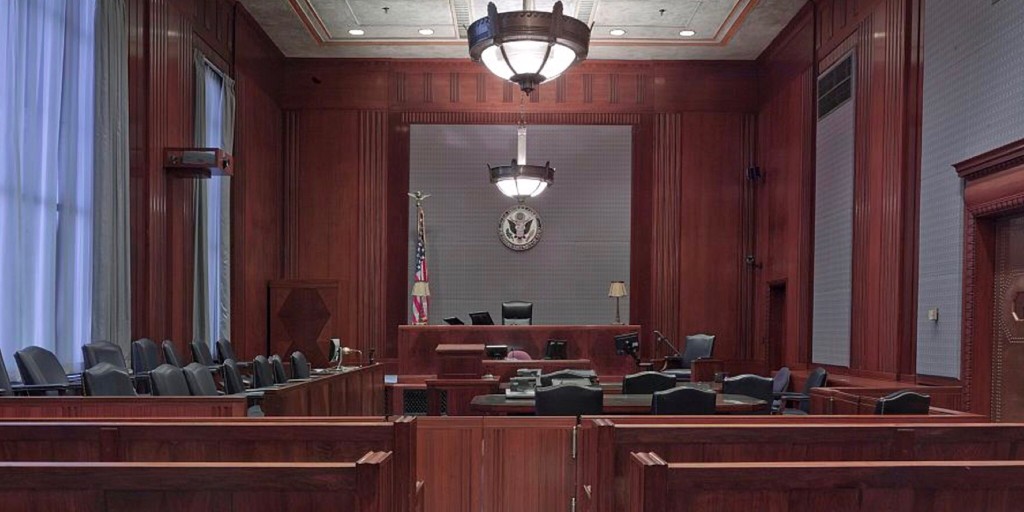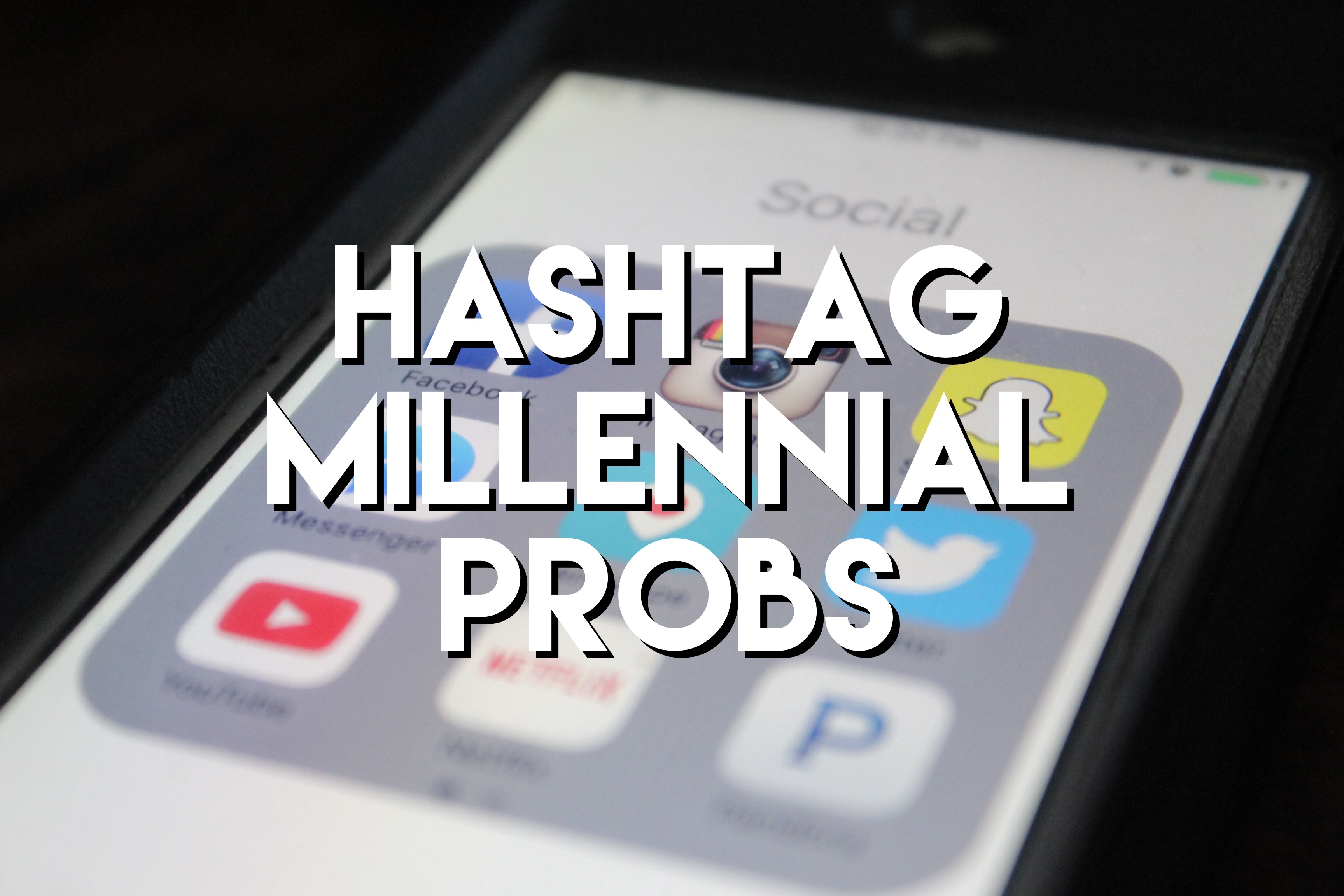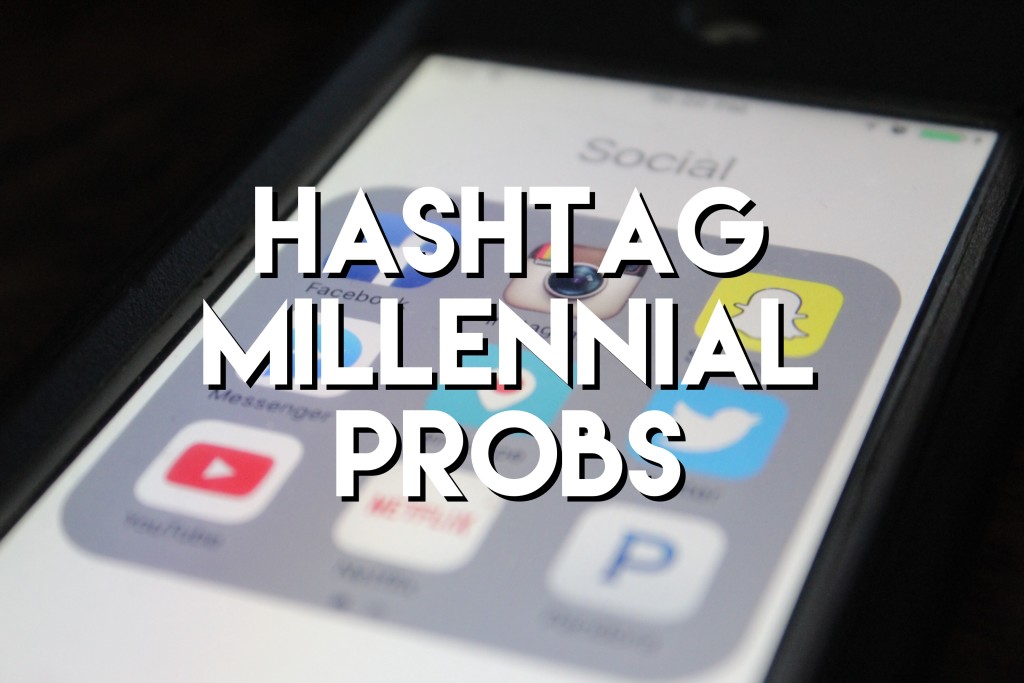I have no formal education in training in how to debate well. The closest I come to having formal debate experience is years of failure from when I believed Facebook debates (“discussions” is what I used to call them) could actually create healthy discourse. I’ve also watched Jim Carrey’s Liar Liar probably one too many times, but I have a feeling that his portrayal of courtroom antics isn’t exactly true-to-life.
Fortunately, there is one debate concept that I have managed to pick up on over the years that has shaped how I engage in public discourse. That is this: there is a difference between making a negative argument or a positive argument. To put it another way, there is a difference between making a negative case against the position you disagree with and making a positive case for the position you hold. In order to make a complete and persuasive argument, you must be able to articulate both a negative and positive case. Otherwise your argument is incomplete and ineffective.
Unfortunately, I think this is a concept that many Christians need to learn (truth be told, I think the general consensus would be that Western society needs to learn this concept – but that is outside of the scope of this article!). Too often I find that when Christians engage publicly with other people and try to make a case for their views, they only do so by making a negative case against the position they disagree with. I rarely hear persuasive and positive arguments for the Christian faith. Many Christians are good at pointing out what they don’t like about other people’s views and positions; they’re not so good at positively articulating why their view or beliefs are better.
Friends, it is a very bitter tasting flavor of Christianity which can only make a case for itself by tearing down the views of others.
I’ve seen this play out not only when Christians engage non-Christians, but also when Christians engage other believers in areas where they happen to disagree. This sad reality then creates a Church where Christians are unable to engage in healthy disagreement and conversation because we’ve so negatively painted other views and positions. Nobody said we have to agree on every theological issue, but we do need to engage each other with love (John 17:20-26, Galatians 5:6). That means we need to be able to emphasize positive arguments for our positions, rather than focusing on what we think is wrong with other views.
Here are a few examples of the kinds of negative argument’s I’ve seen come from Christians the last few years:
- Christianity is right because your religion is wrong. This point is really a bucket for all kinds of poor arguments for Christianity I have heard. One example I have frequently heard is, “Christianity is true because prophets from all the other world religions are still dead!” Ok, true. But what is it about Jesus’ resurrection that actually makes a case for why I can and should trust him? What positive impact does Jesus being raised from the dead actually have on my life? Why does it matter?
I’ve also heard arguments such as, “Christianity is true because other worldviews don’t make proper sense of the world.” Maybe so. But how does Christianity make better sense out of the world?
I was recently sitting in a skeptics meeting where a popular Christian evangelist was brought up. Every single one of the skeptics I was meeting with an aversion to this evangelist because of what he represented to them: someone who couldn’t make a good case for Christianity and instead jumped around from subject to subject trying to tear apart the atheist position. Is this the kind of evangelism we want to be known for?
- Your church has poor worship because it’s not regulative enough. This is something I hear often in Reformed circles. We’re really good at critiquing seeker-sensitive mega-church worship, but we’re really terrible at articulating why the Regulative Principle of worship is both better and healthier in the life of the church.
- Your view of spiritual gifts is wrong because it’s dangerous. I’ve heard this come from either side of the continuationist/cessationist debate. Cessationists will often charge continuationists with dangerous manipulation and expressions of the sign gifts in churches. Continuationists accuse cessationists of “quenching the Spirit,” or imposing some kind of authoritarian rule from the pulpit. This only leads to stereotyping and misrepresentation of our brothers and sisters in Christ. We need to be able to lovingly and clearly articulate why our views are both more biblical and healthier for the life of God’s people today before we jump to negative conclusions about someone else’s views.
- The way you read the Bible is wrong and unhealthy. This argument can come in many forms. I’ve heard people attack the method of Bible reading (“You’re reading is too individualistic” or, “You’re not Christ-centered enough”, etc.). I’ve also heard attacks on the very concept of individual Bible reading (“Christians can’t interpret the Bible on their own” or, “Bible reading should only be done in community”, etc.). There may be truth in these criticisms. But you need to be able to make a positive case for how you want me to read the Bible rather than just making a case against how I do it.
These are just a selection of the kinds of things I commonly hear in Christian circles. Friends, if we want to see our non-Christian friends persuaded to the glories of our faith, then we need to be able to make a positive case for what we believe. And we need to start by being able to make a positive case for what we believe with each other. If we’re unable to do this together as the family of God, how will we ever do it well with those who are looking in from the outside?
In the beginning of Tim Keller’s book Making Sense of God, he longs for a culture where people are able to engage with each other in healthy and respectful discourse. He longs for the kind of place where “people who deeply differ nonetheless listen long and carefully before speaking. There people would avoid all strawmen and treat each other’s objections and doubts with respect and seriousness. They would stretch to understand the other side so well that their opponents could say, ‘you represent my position in a better and more compelling way that I can myself.’”
I too long for this kind of healthy discourse. One of the ways we’ll get there is if we can learn how to emphasize positive arguments before we use negative arguments in our discourse and conversation. Let’s grow in this together.
I walked onto my first shift in the hospital with a sense of fearful confidence. My blue shirt was freshly ironed, and my “New Volunteer” badge was hanging from my neck. It felt like a safety net in case anything went wrong.
Just days before, I had received my assignment: Child Life Services, Pediatric Oncology and Hematology. Up to that point, being around children who were wrestling to get free from death was only a distant idea. I’ve watched the show “Scrubs” 3 or 4 times over, but that can only prepare you so much. There are moments in a person’s life that shape and define them. I did not know that day I would experience one of those moments.
I stepped onto the unit and walked over to the patient board. At first I was happy – I saw that in just a few minutes a magician would be coming to entertain the kids. The fear in me wanted to wait to do anything until he got there. Maybe I can just disappear behind him today, after all he is a magician and it is my first day.
I knew that wasn’t what I was there for, so I set myself to the task of looking over the patient board. That’s when I was hit with a punch right to my sternum. The first patient on the list: 3-year-old. Female. Are you kidding me? Perhaps noticing a look of shock on my face, the nurse standing next to me looked over and said, “She’s been having a really rough morning and has been crying non-stop. There’s probably nothing you can do.”
Maybe not, but I wanted to try. I walked over to her door, squirting the hand sanitizer in my hands along the way (foam in, foam out). I knocked – no response. I slowly opened the door, and like a tidal wave I was hit by multiple forces all at the same time.
There she was on the bed, tears in her eyes. She had a look of sadness and confusion across her face. What can a 3-year-old possibly grasp in terms of what it means to have cancer? It took everything I had to repress the human instinct of shock and disbelief about what was playing out before me. What kind of world would be so cruel to allow this poor girl to be in so much pain?
Her father – perhaps thinking I was on the medical staff – rushed to the door with a huge sigh of simultaneous despair and relief. He had been waiting for someone to come and relieve him so he could go check on her food. I promised I would stay with her until he got back.
As I walked over to her bedside, I began to take it all in. There were tubes and wires hooked up to every limb of her body. She had those sticker fake-earrings on, highlighting the beauty and innocence of such a small child. Strands of her hair covered the bed.
The crying never stopped. I tried everything I could possibly think of. Noticing the sparkling glitter paint near her bedside, I even began to draw things on my face. It only brought a few seconds of relief. Eventually the poor child ran out of energy, and She laid down and quietly sobbed to herself. It was all I could do to just rub her back and pray for her silently as we waited for her dad to return.
As I was rubbing her back, I looked over to the nightstand and saw a book. I drew closer and saw that it was a book by a popular “health and wealth” preacher. This book promised that Jesus would heal you if you simply had strong enough faith. Rage welled up inside of me, followed by incredible sadness.
“Have strong enough faith, and you will be healed!” – that’s what they all say. But what happens when healing never comes? Well, the implication is obvious: your faith isn’t strong enough. Your daughter died, even though you believed? Where was your faith? You’ve failed her.
It is a repulsive and damnable teaching.
And yet, we are all prone to believe this to one degree or another. Our default setting as human beings is to believe that we can earn something from God or manipulate him to meet our needs. The self-help messages of our day which we see plastered all over social media tell us to look inside of ourselves for hope and strength. These messages only feed our default responses in times of great distress and sorrow.
Now here is the great dilemma: your faith – your strength – it will fail. I promise you. When the diagnosis comes, when the car accident happens, when you get that phone call – your faith will fail. Maybe not within the first hour, maybe not on the first day, maybe not even in the first week. But it will. We must learn how to turn to the promises of God rather than our own strength each and every day. The Psalmist said it well:
My flesh and my heart may fail,
but God is the strength of my heart and my portion forever. (Psalm 73:26)
Where will you turn when suffering and affliction comes? Who will you trust? The power and strength of your faith? Or the eternal and trustworthy promises of God?
Promises concerning who you are: loved (Deuteronomy 7:7-8, Jeremiah 31:3), adopted (Romans 8:15, Ephesians 1:5), chosen before time began (Ephesians 1:4).
Promises concerning whose who are: brothers and sisters of Christ, sons and daughters of God (Romans 8:16-17).
He knew you – therefore you are no accident. He chose you – therefore you are not a zero.
Todd Billings is a Christian Theologian who has been diagnosed with an incurable cancer. In his book Rejoicing in Lament, he recalls a sermon from one of his professors many years ago. The professor was reminding his students that their life is hidden with Christ in God (Colossians 3:3). The professor then said, “Remember that, please, when you’re only in your thirties or forties, or your fifties or sixties, and the doctor says it may not be benign.”
There is good news that our life is hidden with Christ in God. As Billings reminded me in his book, it’s not our job to write out the chapters of our lives nor to control God when we feel like we need him the most. Our job and highest act of faith is to be satisfied in knowing who and whose we are.
Dear friend, whom will you trust? Where will you turn?
Sitting in my basement there is a box of trophies and medals from sports teams I played on growing up. Teams that never won any championships. Teams that I never scored a single goal on.
Why? Because I’m supposed to feel special.
With the shifts in technology and the desire for Gen-X parents to be more involved than their Boomer parents came the new trend: Millennials were wanted and we were special. Every moment of our lives was caught on camera. Our birthday parties were well attended and well documented. As one author said it, there was more flash photography at his daughter’s dance recital than an Olympic event. We were the center of attention – and we loved it.
Not only were we the apple of our parent’s eyes, but we were the hope of the world as well. For twenty years we were told that no dream is too small, that we could do anything we set our minds to. “You can be difference makers!,” they said. “Change the world!” That was the vision we were sold, and we ate it up like candy.
How did our society make it possible for us to feel so special, so wanted – as if we really could make a difference? It’s really quite simple – they never let us fail. That’s why I have so many trophies – its a confidence booster. If I can succeed simply by trying my hardest, then what is standing in my way? In one recent survey, a whopping 96 percent of Millennials agreed or somewhat agreed with the statement, “I can do something great.” 96 percent!
We grazed our way through high school and college programs which are nearly impossible to fail, and then we were unleashed upon the world. As if our delicate upbringing wasn’t padded enough, it was too hard for us to adapt to the real world. We moved back in with our parents in order to return to the easy lifestyle of which we were accustomed. Since we had been programmed to change the world, we bounced around from job to job in the hopes that we would finally find a place where we could make a difference. As one author highlighted, twentysomethings go through an average of seven jobs during that decade of their life.
It’s no wonder we’re stereotyped as being entitled and lazy – everything has been handed to us since before we can even remember being alive.
Why do I say all this? Is it because I want to poo poo all over my generation? Not at all. But I do want to highlight a lesson that many of us are already learning: we were set up for failure. For all of our confidence-boosting-center-of-attention upbringing, we were not prepared for the real world.
I was recently in a group discussion where the question was asked, “If you could go back to take one class in high school that was never offered, what would you take?” Most people answered something related to a trade skill. My answer was that I wish I had taken a class taught by guest lecturers whose lives hadn’t worked out they way they had wanted or wished, but had learned to adapt and get past whatever hardships life had thrown their way. A healthy dose of realism would have been a much more realistic way to prepare us for the life ahead.
I’m reminded of the words from the legendary Rocky Balboa. As he said: Let me tell you something you already know. The world ain’t all sunshine and rainbows. It’s a very mean and nasty place, and I don’t care how tough you are, it will beat you to your knees and keep you there permanently if you let it. You, me, or nobody is gonna hit as hard as life. But it ain’t about how hard you hit. It’s about how hard you can get hit and keep moving forward; how much you can take and keep moving forward.
Most researchers agree that Millennials are those of us who were born between 1980 and 2000. That means the oldest of us are 36 and have been in the workforce for some time. As one born in 1987, I think I can speak for my jaded peers in saying what we’ve all learned – this world is in fact a very mean and nasty place. As it turns out, we really can’t do anything we set our mind to. We will not succeed simply by putting our best foot forward. There are no rewards for second place.
But this doesn’t mean we should stop dreaming – in fact, quite the opposite. Rather than being known as the entitled, arrogant and lazy generation who gives up at the first sign of trouble – what if we became known as the generation who never stopped dreaming even when things looked impossible? Someone (not Einstein, as is commonly believed) once said, “The definition of insanity is doing the same thing over and over and expecting different results.” In a similar way, I think Millennials have their own kind of insanity: we never stop trying to make a difference, even when no one says we can. That’s a trait I’m proud of – I hope we never lose it.
Are we special? No. Are we the center of attention? Absolutely not. Will we be rewarded simply if we try? Hah! What a joke.
But can we make a difference? Can we “do something great”? Could we even change the world? I think so. However, I think we have our best shot if those who sold us this idea – Traditionalists, Boomers and Gen-Xers – came along side of us and taught us how to get there. After all, they’ve already been through the grinder and we still have much to learn.
I owe many of my thoughts here to Haydn Shaw’s Generational IQ.
Recently, one of my non-Christian friends asked me a provocative question: “What are your thoughts on the evolution of the feeling of the presence of God?” As I re-type this question, I’m reminded of just how much of a mouthful it was for me to understand. If you’re anything like me, this question throws you a little bit off balance. I have thoughts on evolution, and I have thoughts on what it means to feel the presence of God – but trying to understand the two together? Fortunately, I was in a situation where a few other people were able to respond to the question before me so I could develop a somewhat intelligent when it was time for me to contribute!
This friend of mine introduced me to the work of computational biologist John C. Wathey and his book, The Illusion of God’s Presence. In this book, Wathey investigates the trans-cultural phenomenon of what it means for an individual to feel the presence of God. What he endeavors to show is that this “illusion” of God’s presence can be attributed to neural circuitry that evolved to strengthen the mother-child bond. In other words, infant humans grew accustomed to crying out to their mothers for nursing and comfort. As humans evolved and aged, this genetic instinct for a child to cry out to a mother grew into an instinct for an adult to cry out to an even higher being. Wathey argues that religion and the presence of God fill an emotional and cognitive hole left over from infancy.
Now, I’m still working through the fullness of Wathey’s argument to understand it better. However, I do know that Wathey points to numerous evidences to make his case. Some of these evidences include patterns of infantile imagery across religions, as well as studies of the brain in individuals when they claim to “feel the presence of God.” All of these evidences are used to make the case that this feeling of the divine presence is a product of natural evolution in human beings.
In no way do I think Wathey is necessarily anti-religion or anti-God, nor do I think that is the motivation for his research. However, his work does communicate a certain assumption that is made in our culture today; that if we can prove a supernatural phenomena by natural means, it is no longer supernatural. Let me explain.
There is an increasing polarization between science and faith today. On one side is a line of reasoning which emerged in the early/mid 20th century from evangelical fundamentalists. Their views on science and faith heightened God’s supernatural work in the world to the degree that his involvement in the natural order was downplayed and almost dismissed entirely. However, on the other side arose a line of secular/naturalistic thinking which so greatly emphasized the natural order that the supernatural was no longer necessary. I like to think of these two views as either “extreme supernaturalism” or “extreme naturalism.”
It is my estimation that Wathey – and others like him – fall more into the second camp. This group will use research like what is put forward in Illusion to make the case that since we can now prove why a given supernatural phenomena exists, all supernaturalism is simply a byproduct of evolution. We may not be able to explain all supernatural phenomena at this time, but the fact that we can explain some means that we will eventually be able to explain supernaturalism away.
However, both of these extremes ignore a very crucial and significant point. You see, Christianity is built upon the foundational idea that the Supernatural become natural; that the eternal Son incarnated himself in the form of a man (John 1:14, Rom. 8:3, Phil. 2:6-8). This Godhead has now united us to himself forever by his Spirit (Rom. 8:9, Eph 3:17, 4:22). The God-man now lives in the form of both the supernatural and natural; in addition, he has united the natural man to himself supernaturally through the Spirit.
So you see, Christianity is neither extreme supernaturalism nor is it extreme naturalism, instead it is a kind of natural supernaturalism. The trajectory of history is one of restoration, as God supernaturally restores and reconciles the natural order unto himself (Acts 3:21, Revelation 21:1-4).
Many Christians are troubled when they hear of research which seems to explain divine actions or activity. However, we not not fear such scientific discovery – we should embrace it. The reason for this is because given the inseparability of the supernatural and the natural in Christ, we should expect to find natural explanations for God’s work in the world.
Now, I don’t buy into Wathey’s conclusions – I think they’re largely an interesting theory. However, I would argue that any true conclusions which come from his research only make sense from a Christian worldview. It is only there where we find a consistently rational explanation for supernatural occurrences in the natural world. What a time to be alive in redemptive history, when we are able to discover more about God’s activity in the cosmos through the natural means he has given us!







